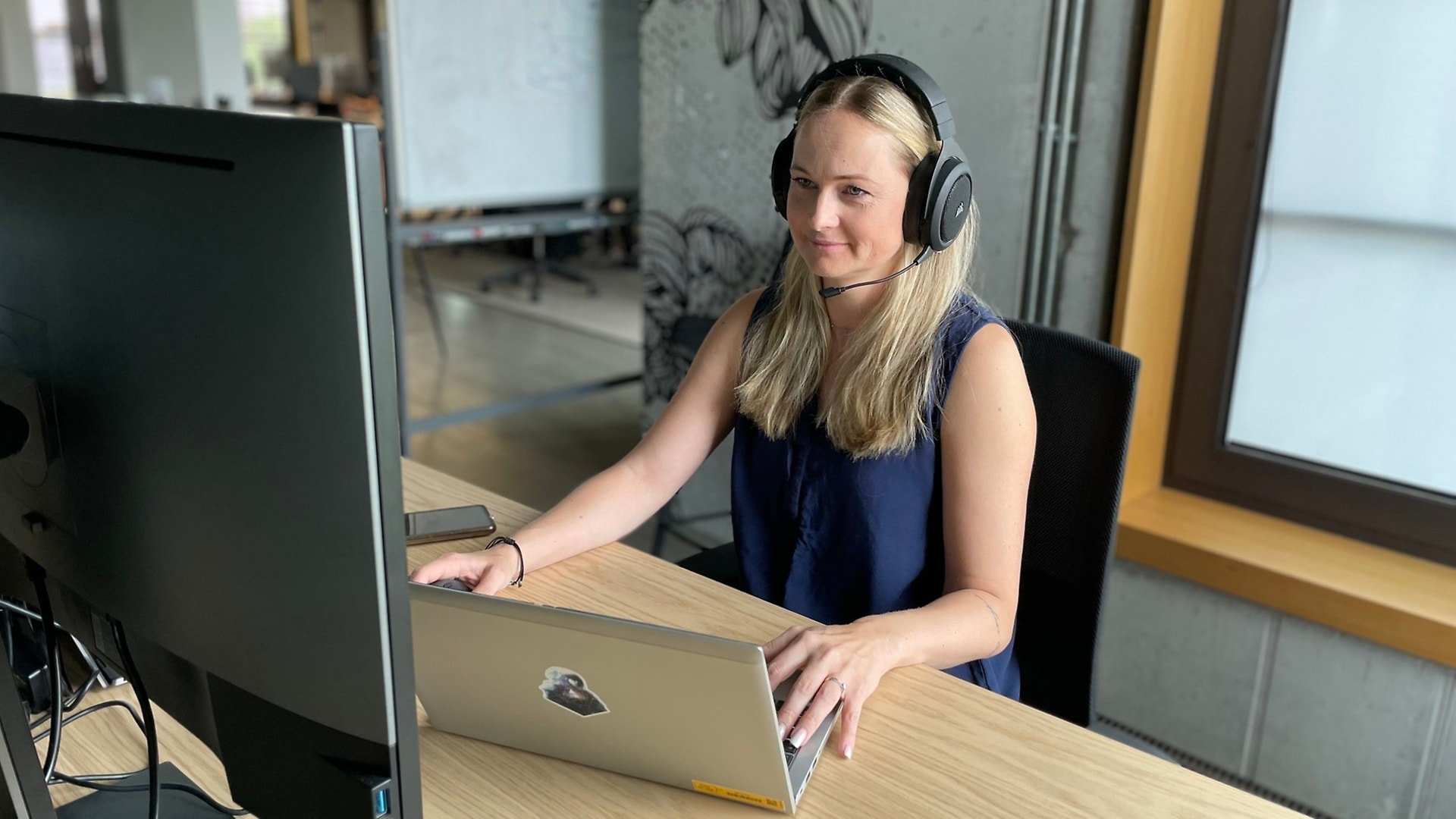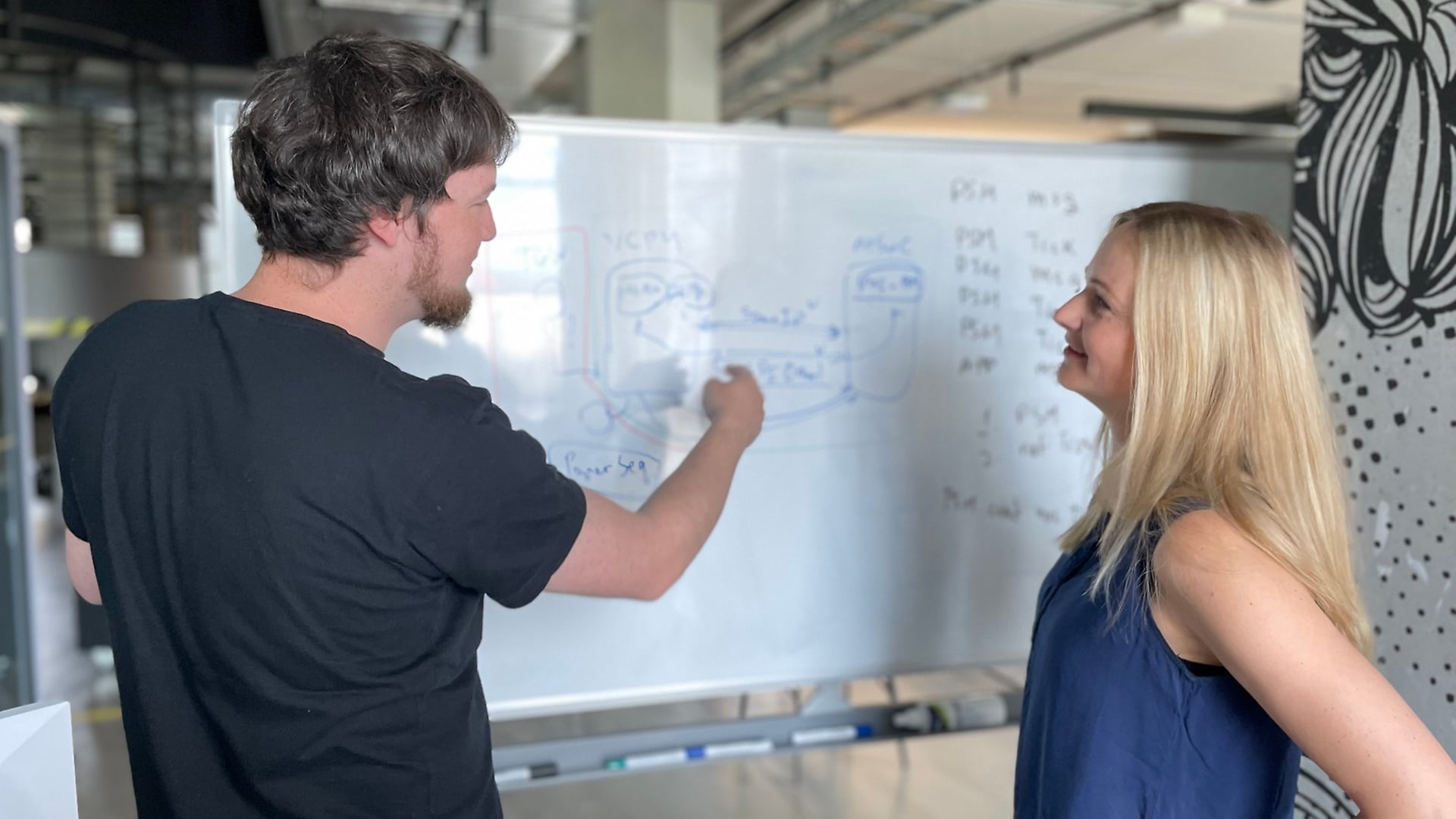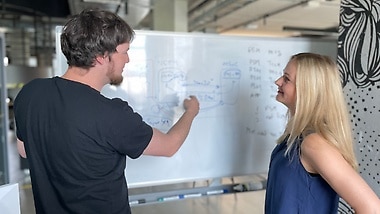After 15 years as a supplier developer, you are now one of the first participants in the new "Digital Pioneers" project at Mercedes-Benz. You are now training to become a Junior Software Developer. How keen are you to learn new things in this field?
Electric mobility and digitalisation are key topics in our company. This transformation is having a huge impact on our location as a production plant for components and engines for internal combustion models. So the plant has to change, and for me it was clear that I also want to change. It's important to be ready to learn something new, even after almost 20 years. I want to be involved as the plant goes through this process of transformation, and see how we can achieve this together. This is completely new territory for me, and I'm one of the few in the programme who had no previous knowledge. Without being open to new ideas and having the will, you couldn't do it.
What was the selection procedure?
I took part in a "Digital Challenge", which involved answering 15 questions on digital topics in English. Basic IT knowledge was not required. I found out soon afterwards that I had completed the Challenge successfully. In a personal interview, I was asked about my current English skills and my motivation for this in-service training. A really large number of employees applied for it. All in all, several hundred of my Berlin colleagues took part in the Challenge. In the end, eleven participants were selected, including me, and we're the first to follow this programme. We come from a wide range of professional backgrounds, but above all from the production sector. In the meantime, there is already a second group of future Junior Software Developers in Berlin. I'm sure there will be more to come.
You started in November 2021. How is the training integrated into your daily work?
We are given two days off per week for the project, and since the training takes place online, you can be flexible about how you arrange your learning time and where you do it. At the beginning, everyone in the team naturally had to adjust to being released from day-to-day operations. Since then, our team has received reinforcements and I can concentrate fully on the training. But some challenges always remain, of course. We discuss these in our weekly "pioneer rounds" in order to pass on our experience and pave the way for the next group.
And how is the learning organised?
After each lesson, knowledge is tested by working on and submitting a project assignment. After the first training block, there was a "Digital Challenge 2.0". This involved testing the skills acquired in order to assess the level of qualification and identify the learning content for further in-depth training. We then moved on to specialisation - either as a front-end developer or full-stack developer. I decided on the front end, in other words the part of a website or app that is visible to the user. In addition to theory, the programme also includes practical assignments. For this purpose, the Mercedes-Benz Group uses small assignments or ongoing projects, which we join as a way of consolidating the skills we have learned. In total, there are between 290 and 330 hours of online learning in English. In the beginning, I had to translate a lot of the words for myself, as I was not familiar with the English technical terms used in programming. This is gradually becoming less necessary. Given that all the coding is in English, and that many software development teams are multicultural, English makes perfect sense. I also noticed this during my two-week internship with our software developer MBition.
,xPosition=0,yPosition=0.5)




,xPosition=0.5,yPosition=0)
,xPosition=0.5,yPosition=0)